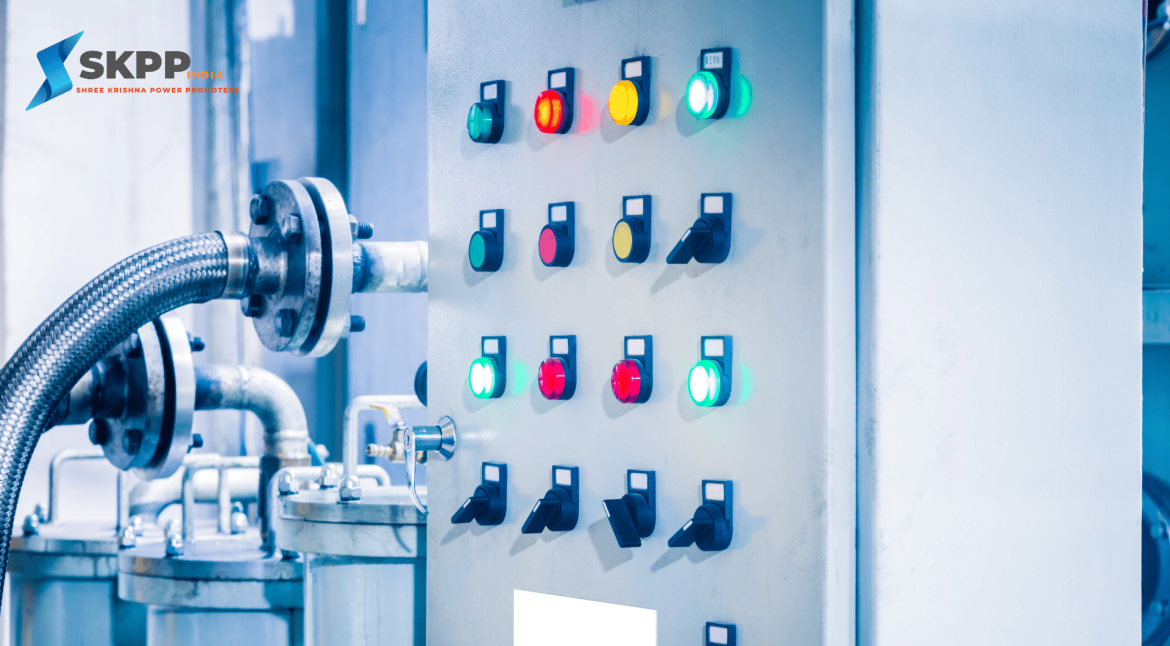In today’s fast-moving industrial world, electric panels for industries play a crucial role in ensuring safe and reliable power distribution. Whether you’re managing a factory, manufacturing plant, or any large-scale facility, choosing the right type of electrical panel—LT (Low Tension) or HT (High Tension)—can significantly impact your operations.
From regulating voltage to protecting machinery and minimizing downtime, LT and HT panels are essential components of industrial electrical infrastructure. Let’s break down their importance and understand how they support the power needs of modern industries.
What Are Electric Panels for Industries?
Electric panels, often called switchboards or distribution boards, are systems used to control and distribute electrical power within an industrial environment. These panels manage the flow of electricity from the utility source or power generator to machines, equipment, and other loads.
There are two major types:
- LT Panels (Low Tension Panels): These handle voltage levels up to 1000 volts.
- HT Panels (High Tension Panels): These handle electrical voltages above 1000 volts, commonly ranging from 11kV to 33kV, and are used to manage high-voltage power received from the grid or substation.
Each type serves a unique purpose, and together, they form the backbone of a plant’s power distribution system.
Why LT Panels Matter in Industries
LT panels are found in most industries as they deal with lower voltage power, ideal for machinery, lighting, and HVAC systems. Here’s why they matter:
1. Safe Power Distribution
LT panels help safely distribute power to different parts of your plant or unit. This organized distribution ensures that no part of the system is overloaded, reducing the risk of electrical fires or system failures.
2. Customizable for Different Loads
Industrial needs vary. LT panels can be customized with circuit breakers, meters, relays, and isolators to suit specific operations.
3. Supports Energy Efficiency
Modern LT panels come with energy monitoring systems that help industries track and reduce their power consumption, ultimately cutting down electricity bills.
4. Easy Maintenance and Upgrades
LT panels are generally easy to maintain, and components can be replaced or upgraded without significant downtime.
Why HT Panels Are Equally Important
While LT panels handle internal distribution, HT panels are the first line of contact for incoming high-voltage power from the grid or substation.
1. Efficient Handling of High Voltage
HT panels regulate and transfer high-voltage electricity by stepping it down to lower voltage levels, making it safe for further distribution through LT panels and protecting industrial equipment from potential damage.
2. High-Level Protection
They’re designed with relays, protection circuits, and auto-trip features to prevent short circuits, overloads, and faults, making them critical for safety.
3. Vital for Large Power Loads
Industries like cement, steel, chemical, and textile manufacturing often require large amounts of power. HT panels help manage these demands efficiently.
LT and HT Panels: How They Work Together
Instead of comparing features side by side, it’s more helpful to understand how LT and HT panels function together within an industrial setup:
HT Panels – The Entry Point
High Tension panels are the first stop for incoming electricity from the utility provider or substation. These panels manage high-voltage power—typically between 11kV to 33kV—and step it down to safer levels before it flows further into the facility. They’re essential for industries that consume heavy power loads and need secure voltage regulation right at the source.
LT Panels – The Distribution Hub
Once the voltage is reduced, LT panels take over. These panels distribute the stepped-down electricity across various machines, lighting systems, HVAC units, and other low-voltage equipment throughout the plant. They ensure smooth and balanced power flow within the facility, keeping operations efficient and safe.
Working in Sync
While HT panels handle the bulk power input, LT panels ensure that power reaches every department safely and efficiently. Together, they create a smart and stable distribution network that supports industrial performance without interruption.
How SKPP Supports Industrial Power Needs
At SKPP India, we specialize in providing reliable, customized electric panels for industries that comply with the latest safety and quality standards. Our HT and LT panels are built to ensure seamless power flow, reduced losses, and protection against power disturbances.
Whether you’re expanding your plant or setting up a new facility, we offer turnkey solutions—from design and manufacturing to installation and after-sales support.
Why Electric Panels Are a Long-Term Investment
Industrial electric panels aren’t just about switching power on and off. They’re about:
- Ensuring business continuity
- Protecting valuable equipment
- Improving operational efficiency
- Meeting safety compliance standards
Neglecting the quality or configuration of your electric panels could lead to unexpected failures, production loss, or even fire hazards. That’s why working with experts like SKPP ensures that your panels are future-ready and safe.
Frequently Asked Questions
Q1. What is the main difference between LT and HT panels?
LT panels handle voltage up to 1000V, suitable for internal plant distribution, while HT panels manage high voltage (11kV to 33kV) received directly from the grid.
Q2. Why do industries need both LT and HT panels?
HT panels step down the high voltage power, which is then further distributed by LT panels to machinery and internal systems.
Q3. How often should electric panels be maintained?
Regular inspections should be done every 6 to 12 months, depending on the load and usage. HT panels require more specialized maintenance.
Q4. Are SKPP panels compliant with industrial standards?
Yes, all SKPP electric panels are designed in compliance with BIS and IEC standards, guaranteeing high levels of safety, long-term durability, and reliable performance.
Q5. Can electric panels be customized for specific industries?
Absolutely. SKPP provides tailor-made panel solutions based on your industry type, power load, and infrastructure.



